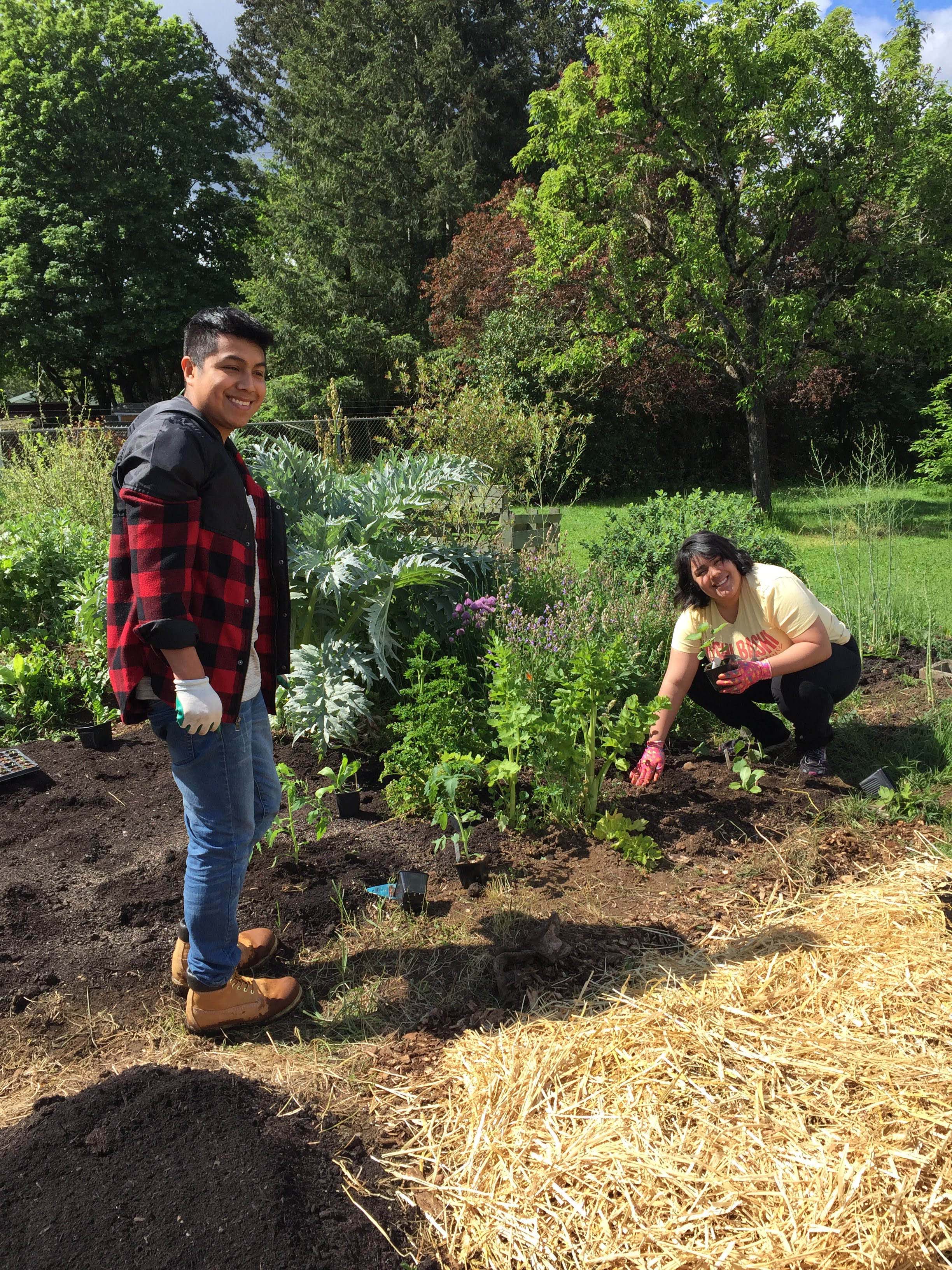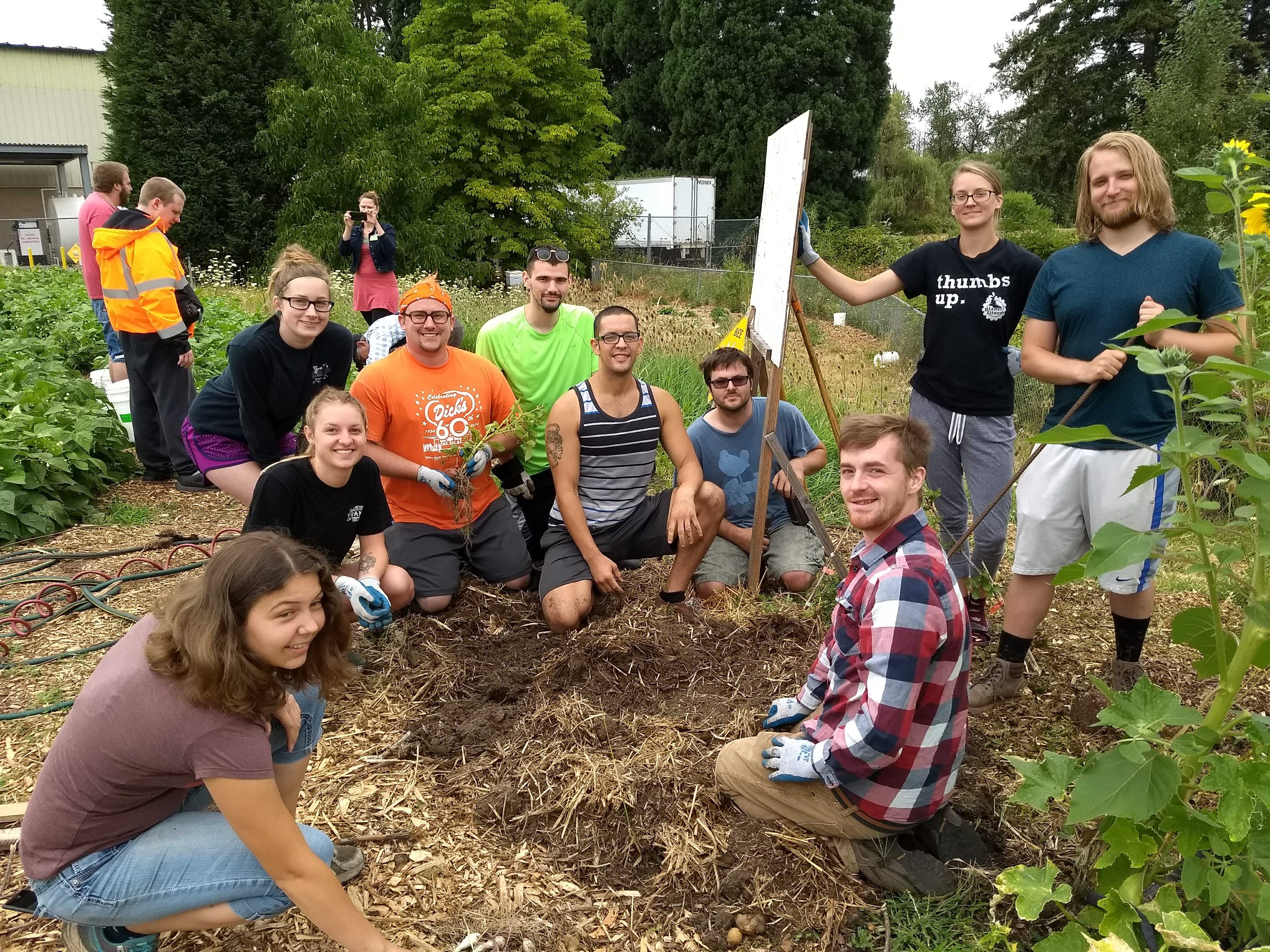Learning Gardens, Community Engagement and Sustainability
 Students will explore community food security through community engagement in learning garden programs. Class time will focus on issues of community food security and ways to create food justice through community engagement and learning gardens. Students will work with a variety of people and organizations partnered with the Learning Gardens Laboratory (SPR term) and the Oregon Food Bank Learning Gardens (SUM/FALL term). View Video of Seed to Supper Program
Students will explore community food security through community engagement in learning garden programs. Class time will focus on issues of community food security and ways to create food justice through community engagement and learning gardens. Students will work with a variety of people and organizations partnered with the Learning Gardens Laboratory (SPR term) and the Oregon Food Bank Learning Gardens (SUM/FALL term). View Video of Seed to Supper Program
https://www.youtube.com/watch?v=6n8F8yB74uE
Instruction is designed so that students will able to practice skills needed to serve the community partner, and to foster community building and engagement, interpersonal communication, critical thinking, organization, creativity and collaboration. Students will examine community service learning through the lens of “sustainability leadership.” We will also participate in hands-on gardening activities either at the Learning Gardens Laboratory or the Oregon Food Bank Learning Gardens. Students will have opportunities for outreach to members of the PSU community to develop community partnerships that address food security issues. The final projects focus on the Oregon Food Bank's Seed to Supper program, and when at LGL the final projects focus on the LGL market farm stand, PSU Harvest Share and other outreach projects to help raise the visibility and community awareness of the impact the Learning Gardens Laboratory and the Oregon Food Bank in the Portland Metro region. First Class meets On Campus, see class schedule for room listing, Off Campus classes located at LGL in southeast Portla nd or at the Oregon Food Bank NE Learning Gardens, directions TBA first day of class.
nd or at the Oregon Food Bank NE Learning Gardens, directions TBA first day of class.
This course is designed to enable students to practice the skills needed to serve the community partner and to participate in community engagement. These skills include: interpersonal communication, critical thinking and inquiry, social and ethical responsibility, collaboration with diverse populations and organizations, creativity, and the ability to create social justice and equity.
The Goals of this Capstone include:
· Participate in respectful and thoughtful discussion of food security, the environment, food sustainability, education, and social stratification in class and at the partner site reflect on your role as an individual member of society with capacity to impact food security on a local scale and create change Analyze local community dynamics as they relate to food security and community involvement in learning gardens
· Identify challenges and evaluate solutions related to the issue of community food security
· Practice the skills needed to develop projects for the community partner and to participate in civic affairs, such as interpersonal communication, critical thinking, resource identification, organization, research, creativity, and collaboration
· Develop an understanding of, and practice in a multicultural approach to building community
- Analyze the role of sustainability leadership in community building
Students will explore community food security, and the global issues that affect community food systems. Students will engage with Learning Gardens Laboratory or the Oregon Food Bank Learning Gardens in the following ways:
- Collaborative work in the garden as a class throughout the term; independently scheduled service work for the garden (the number of hours varies by term depending on the final project); work in teams on final product, which typically involves some event planning, capacity-building and community outreach for the Learning Gardens Lab (LGL) or the Oregon Food Bank Learning Garden Program - Seed to Supper or the Woman's Wellness Garden(WWG).
Students are graded on:
- discussions
- reflection journals,
- special assignments
- and the final project.
The purpose of class discussions is for students to bring information to each other for discussion and critical analysis. The reflection journal is a way for students to reflect on and deepen their understanding of course themes and UNST goals. Students will increase visibility to the LGL or OFB through the capstone project. Each student contributes to the work of their committee and will be responsible for a portion of work on the final product. The final product varies for this course.
For the Oregon Food Bank: students focus on partnering with on-site garden programs including Mudbone Grown, the Intertribal Breastfeeding Garden and the Seed to Supper programs. In Summer, 2017, students worked with OFB staff to develop hands-on activities to facilitate garden-based programs for adult learners.
Some examples of final products/projects for the Learning Gardens Laboratory: in Fall 2008, students put together a harvest festival event at the Learning Gardens Laboratory, and in Summer 2013 and Spring 2014, students designed and produced a video production. The video was produced over two courses. In Summer 2014, students worked with the community partner in the development of a Market Stand Project. This project was designed by graduate students to grow vegetables and build a market stand to sell produce to the local neighborhood. In collaborations with the Brentwood Darlington Neighborhood Association, students and LGL community members will work together to promote and foster greater access to locally grown produce.
